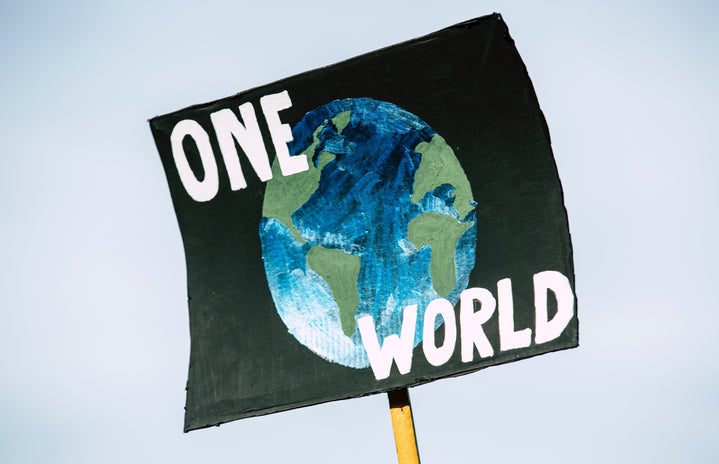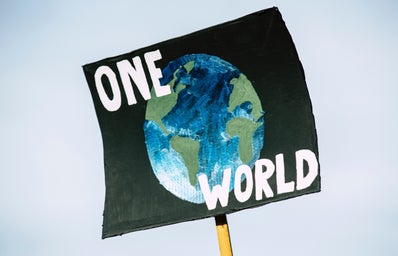Whenever someone asks me to “share a fun fact” (which we all know oddly happens a lot in college) I usually default to revealing some random food I’ve never tried. Things like Coca-Cola, pickles, Ranch dressing, hotdogs, are some of the ones that often get people gasping. While most of the lack of experience I have with food is due to the extremely picky diet I had as a kid, some of it came from my parents’ tight restrictions on fast food, processed snacks and school lunches.
Growing up, I used to drive past a McDonald’s and long for the indoor playground that was always visible through large windows from the street. My mom used to call it “the stinky food place” and we only ever stepped foot through a Mickey D’s if it was to use its restroom as a pit stop during a long road trip. The only exception was when Anastasia, a girl in my second grade class, invited me to her birthday party at a nearby McDonald’s where I watched the rest of the kids eat their burgers as I sipped my chocolate milk.
Eventually I started to feel like I was better than everyone else. I’d sit with the rest of my friends at the lunch table as they’d eat their pizza and Graham Crackers off of their squeaky Styrofoam trays as I unzipped my reusable lunch box containing a soynut butter and jam sandwich and sliced apples. Of course, most of my ego actually came from the resentment I had for my parents who never got me the Fruit Roll Ups that left an image of Scooby Doo on your tongue, or the brownies that came with rainbow colored sprinkles. Yet, I never hesitated to think of myself as the “healthy” kid who always used Tupperware over Ziploc bags and never shopped at Walmart.
This was a flawed, obnoxious and pretentious mindset that allowed me to look down on others out of my own bitterness for only ever being allowed Goldfish crackers when they were whole grain and on sale.
I love the choices that my parents made when it came to nutrition and sustainability. Should I ever have a child, I also hope to send them to school with a lunch box full of Tupperware containing foods I bought at my local market. But what I was unable to understand as a kid is that being able to make choices that are “sustainable” is a privilege. Being able to shop locally rather than through chains, packing lunches from home, and having home-cooked meals rather than fast food is a financial and economic status.
It’s not often that we think of sustainability as a privilege, rather than just a general option. People who don’t live sustainably are actively choosing not to and are therefore a big part of the problem, right? Well, I am certain that people like Jeff Bezos are in fact a major part of the problem and definitely have the financial means to make better decisions. But for the majority, the desire to live sustainably is hidden behind financial barriers.
It is important (and perhaps obvious), however, to point out that financial flexibility does not guarantee a sustainable lifestyle, and not just for people like Mr. Bezos. While affluence provides people opportunities to invest in electric or more fuel-efficient vehicles, fund a vegan diet, or install solar panels on the roofs of their homes, a person’s actual willingness to live sustainably starts to conflict with comfort and leisure.
After a long day, I am always confident I don’t have to worry about the length of my shower because I know that I will be able to pay whatever the utilities charge comes out to be. I almost never shop using Amazon, but it’s rare when I am able to resist a clothing sale at Anthropologie or Free People which ship me packages from across the nation (and before that from who knows where). I may be lucky enough to live in an area where my recycling gets picked up every two weeks, but I am unable to tell you where exactly it’s taken and how much of it gets made into something new.
There is a lot that I don’t know about my own impact on the Earth. I drive without knowing my gas mileage, eat without knowing where my food was grown, and I shop without knowing whose hands created the product. But my biggest blindspot has been letting my ego prevent me from seeing that sustainability is just as much about access as it is choice.
I don’t intend to encourage myself or others to feel guilty. Guilt is unproductive and there is too much that needs to be done. Rather, I wish to do the opposite and support others in their own self-reflection and acknowledgment that is free of remorse and full of sustainable aspirations for the future. We all have our blindspots; some of them are circumstantial or results of natural ignorance, and others are a little more conscious. Sometimes the best thing we can do is to just try and find them.


